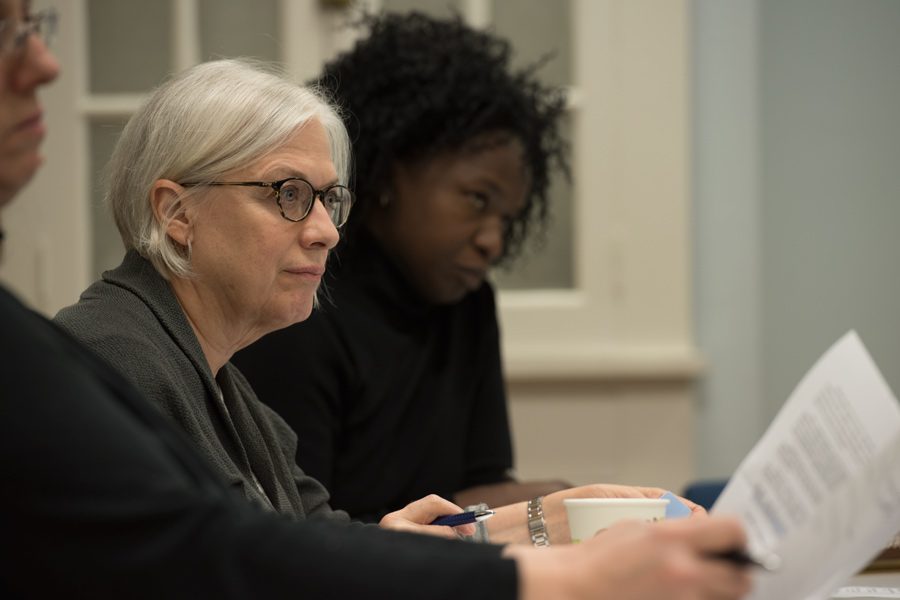Evanston Environment Board debates lifting plastic bag ban and adding bag tax
Daily file photo by Allie Goulding.
The Evanston Environment Board discussed a proposal to lift the city’s plastic bag ban.
October 14, 2022
The Evanston Environment Board announced a new proposal to tax single-use plastic bags in its Thursday meeting.
These bags — currently banned for distribution in Evanston businesses larger than 10,000 square feet, with exceptions for grocery stores, restaurants and non-chain stores — would be taxed at 15 cents per bag under the new proposal. The proposal would end the ban until 2024, and bags for produce and other grocery items would be included in the new tax.
The board proposed to give seven cents of the tax to the Solid Waste Fund, three cents to the Health and Human Services Department for enforcement and five cents back to the retailer.
“I like the addition of the produce plastic bags to the ban,” board member Matt Cotter said. “In addressing the climate crisis we have to, as a society, have everyone do their part.”
The tax will also expand to include individuals using Supplemental Nutrition Assistance Program and dry cleaning bags, though ending the SNAP exemption has sparked controversy. Cara Pratt, Evanston’s sustainability and resilience coordinator, said the original proposal exempted program participants.
Annie Coakley, executive director of Downtown Evanston, called a meeting with Evanston business leaders to discuss the proposal. She said none of them were in support.
Since the proposal allows businesses to collect five cents from each taxed bag, Brian Zimmerman, Evanston’s solid waste coordinator, said he thought the proposed changes would garner support from the business community.
Still, Coakley said that’s not changing how business owners feel, especially since carry-out orders in plastic bags have kept some restaurants afloat in recent years.
“The restaurant community especially felt like that was very unfair to them,” Coakley said. “A lot of carry-out (ordering) has happened since the pandemic and will continue to happen, as we still dig out of the pandemic.”
Zimmerman said it is cheaper for business owners to use the single-use plastics, compared to paper or compostable bags.
The committee also discussed the city’s sewer system. Water Production Bureau Chief Darrell King presented information on salting roads, informing contractors and community members about practices to keep sewers clean and the impact of “forever chemicals.” Northwestern chemistry Prof. William Dichtel recently found a way to dispose of the human-made chemicals that don’t break down over time.
The committee also discussed the Climate Action and Resilience Plan, which aims to cut carbon emissions in half by 2025. The city has seen a 36% reduction in carbon emissions since 2005.
Boardmember Michelle Redfield said the plan is achievable in Evanston, pointing to other locales that have implemented similar policies to combat climate change.
“If (other cities) can do it, we can do it, too. It’s a big behavior change, and nobody likes to change, so we’re going to get pushback from everywhere,” Redfield said. “We can’t keep doing the same things we’ve been doing forever, or nothing will change.”
Email: jeremyfredricks2026@u.northwestern.edu
Twitter: @JSFredricks
Related Stories:
— Evanston proposes 10-cent tax on shopping bags to replace 2014 plastic bag ban
— CARP struggles to gain traction three years after its implementation


